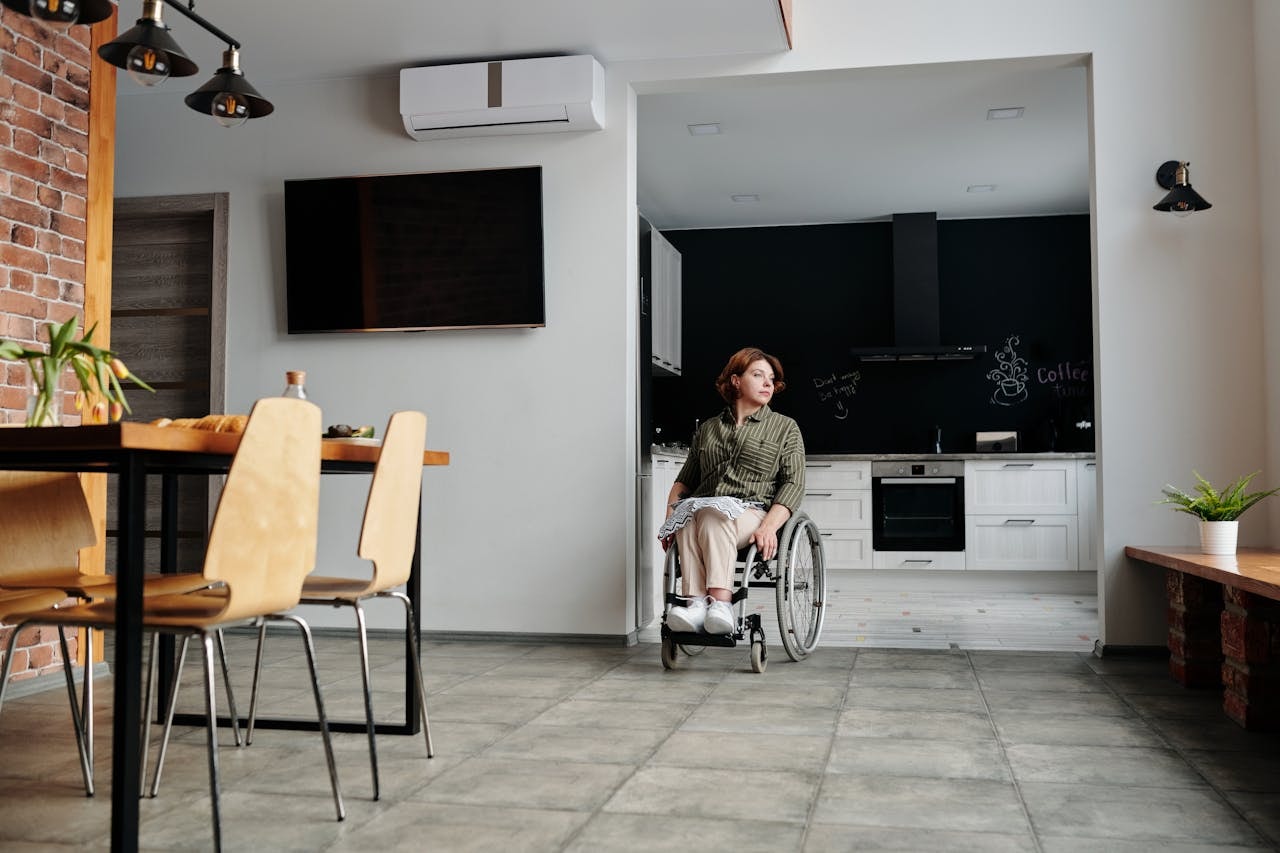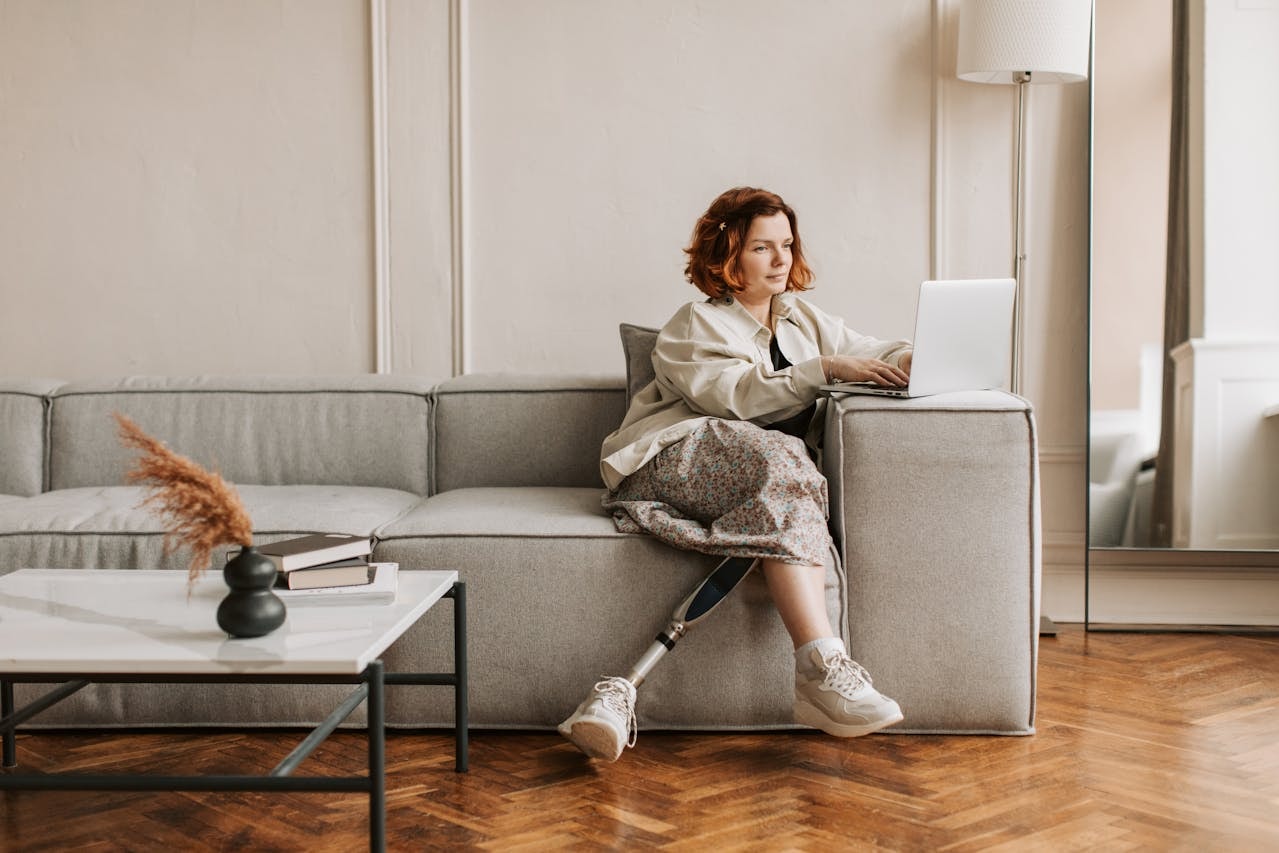Your Guide to Independent Living Resources Under NDIS: Tools and Support for a Self-Reliant Life

Independent living is a vital goal for the lives of many Australians living with disabilities, and at Re.Connect Support Services, we aim to make it achievable through quality support and resources. As an NDIS Registered Provider, we bring both professionalism and compassion to our services, helping participants access independent living resources that foster self-reliance, resilience, and empowerment.
What are Independent Living Resources?
Independent living resources encompass tools, support, and strategies that assist people in managing their day-to-day lives autonomously. These resources can include everything from home modifications to assistive technology, personal care services, and organisation and community support, all of which make independent living more accessible.
How NDIS Supports Independent Living
Under the NDIS (National Disability Insurance Scheme), participants can access funding to support independent living, addressing various needs that contribute to a fulfilling, self-reliant life. From enhancing mobility to improving personal care routines, NDIS funding empowers individuals with disabilities to live independently with the right resources.
Key Independent Living Resources Available Through NDIS
Below, we outline some of the essential independent living skills and resources available through the NDIS, all designed to empower participants in their journey toward independence.
1. Home Modifications
- Home modifications ensure safety and ease in daily activities. Examples include bathroom adjustments, ramps, and widened doorways.
- Through NDIS funding, participants can access essential modifications that improve accessibility and safety in their living environment.
- Learn more about home modifications through the official NDIS website.
2. Assistive Technology and Mobility Devices
- Assistive technology such as wheelchairs, hearing aids, and communication devices significantly supports independence by enhancing mobility and accessibility.
- NDIS participants can access a range of equipment that helps them navigate their homes and communities with confidence.
3. Support Coordination
- A dedicated support coordinator can assist participants in understanding their NDIS plans, connecting them with appropriate resources, and arranging services.
- This guidance helps participants and their families navigate challenges, manage appointments, and achieve their independence goals.
4. Occupational Therapy
- Occupational therapy is a valuable service for those aiming to live independently. Therapists provide strategies to improve daily life skills, from hygiene to cooking.
- This support develops skills for safe and effective participation in daily tasks, with a focus on maintaining well-being and independence.
5. Personal Care and Hygiene Support
- Personal care assistance covers essential activities such as dressing, bathing, and grooming, enabling participants to live with dignity and independence.
- Through NDIS, participants receive funding for personal care, ensuring they can carry out their hygiene routines confidently.
Benefits of Independent Living Resources for NDIS Participants

Accessing independent living resources brings numerous benefits, fostering personal growth, autonomy, and the capacity for active community involvement. Here’s how these resources impact participants:
- Enhanced Quality of Life: With resources like assistive devices and personal care support, participants experience improved well-being and comfort.
- Increased Control Over Daily Life: Home modifications and support coordination provide participants with more control over their environment, enhancing safety and accessibility.
- Building Essential Skills: Services such as occupational therapy help participants develop skills for managing daily activities independently.
How to Access Independent Living Resources with NDIS
Accessing these resources requires some planning and, often, the support of a top health and coordinator. Follow these steps to get started:
- Connect with an NDIS Support Coordinator
- A support coordinator helps participants explore the resources they’re eligible for, guiding them through their options for independent living.
- Develop a Personalised Plan
- Participants should work with their support coordinators and families to create a plan tailored to their needs and aspirations for independence.
- Apply for Funding
- NDIS offers funding for a range of resources, from home modifications to assistive technology. Participants can consult their support coordinator on how to apply for and manage this funding effectively.
- Build a Supportive Network
- Support extends beyond professional assistance. Family, friends, and community resources provide a network that bolsters independence and confidence.
Challenges and Solutions for Living Independently with Disabilities

While the journey toward independence is rewarding, it’s not without challenges involved. Accessing quality resources, finding supportive programs, and understanding funding options are common hurdles that participants face.
1. Navigating Complex Programs
- With the guidance of a dedicated support coordinator, participants can manage their NDIS plans and funding effectively, ensuring they receive the resources they need.
2. Accessing High-Quality Services
- Partnering with experienced organisations like Re.Connect Support Services helps participants secure reliable support and quality care.
3. Building a Daily Routine
- Occupational therapists provide education and strategies for building daily routines that reinforce independence, making it easier to integrate personal care, appointments, and social activities.
Additional Resources for Families and Carers
Families play an essential role in supporting the independence of their loved ones. Here are some helpful resources and strategies to support them:
- Advocacy Groups: Organisations such as People with Disabilities Australia offer support, information, and community events for families and carers.
- Education and Training Programs: Training programs can help family members develop knowledge about supporting independent living, particularly around safety and assistive devices.
- Community Support Networks: Encouraging participants to engage in local communities provides valuable social connections, empowering them to participate fully and independently.
How Re.Connect Support Services Can Help You Access Independent Living Resources

As an NDIS Registered Provider, Re.Connect Support Services is here to help you navigate the journey to independence. We offer a range of services tailored to empower participants, from support coordination and advocacy to personal care assistance. Our team is dedicated to making independent living an achievable goal, with resources and support tailored to your unique needs.
Contact Us Today
Whether you’re looking to explore home modifications, assistive devices and equipment, or personal care options, Re.Connect Support Services is here to help. Our professionals work alongside you to develop a plan that empowers you to live independently and confidently. Visit the NDIS website for more details on available funding options, or contact us to learn how we can assist you.
Conclusion: Achieving Independence Through NDIS Support and Resources
Living independently is more than a goal – it’s a journey, and with the right resources, support, and planning, you can navigate it successfully. Re.Connect Support Services is proud to be part of that journey, helping Australians access independent living resources that enhance their lives and empower their abilities. Start your path to independence today with the guidance and expertise of our dedicated team.


